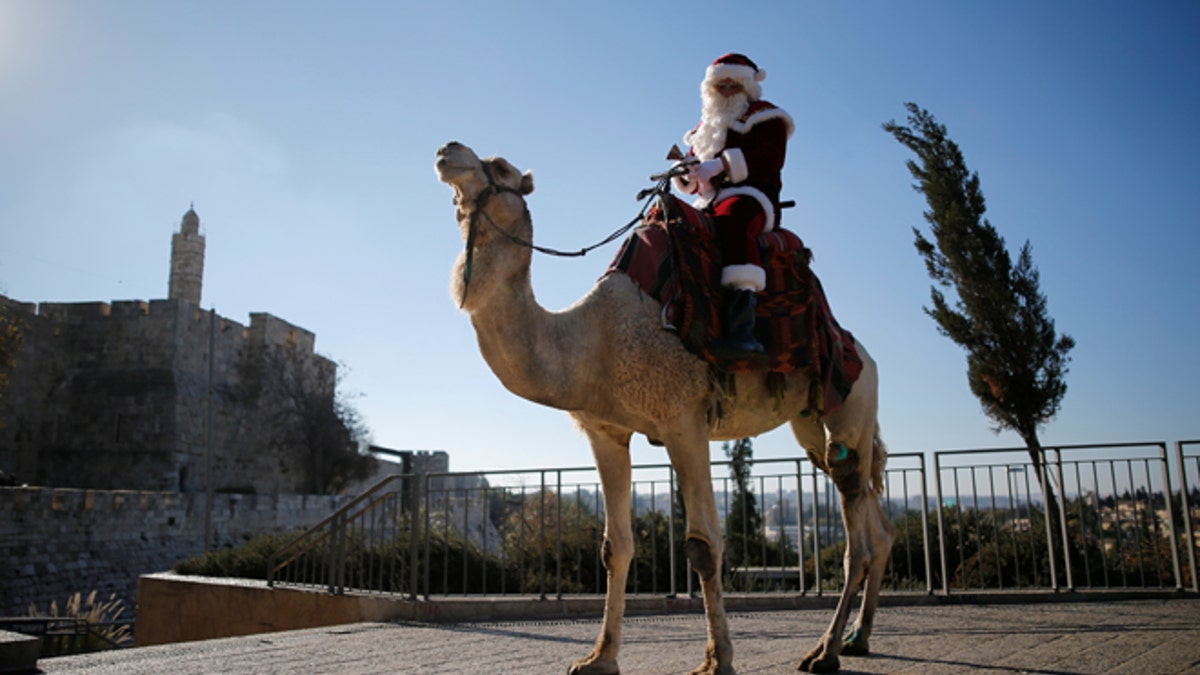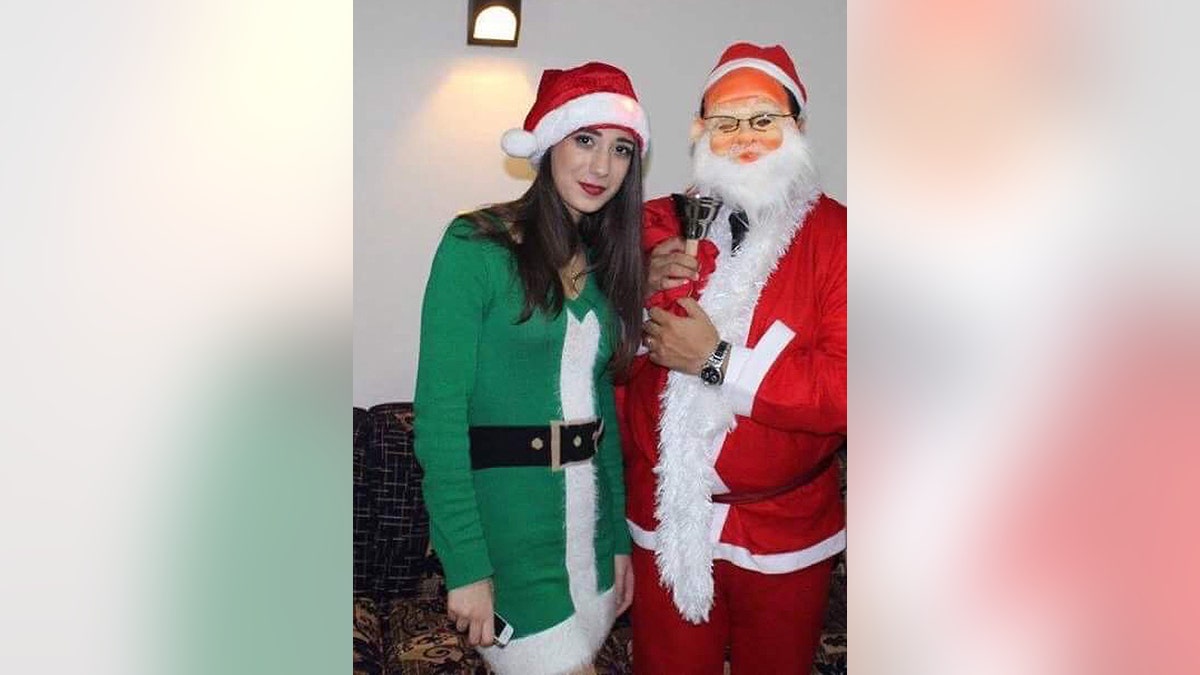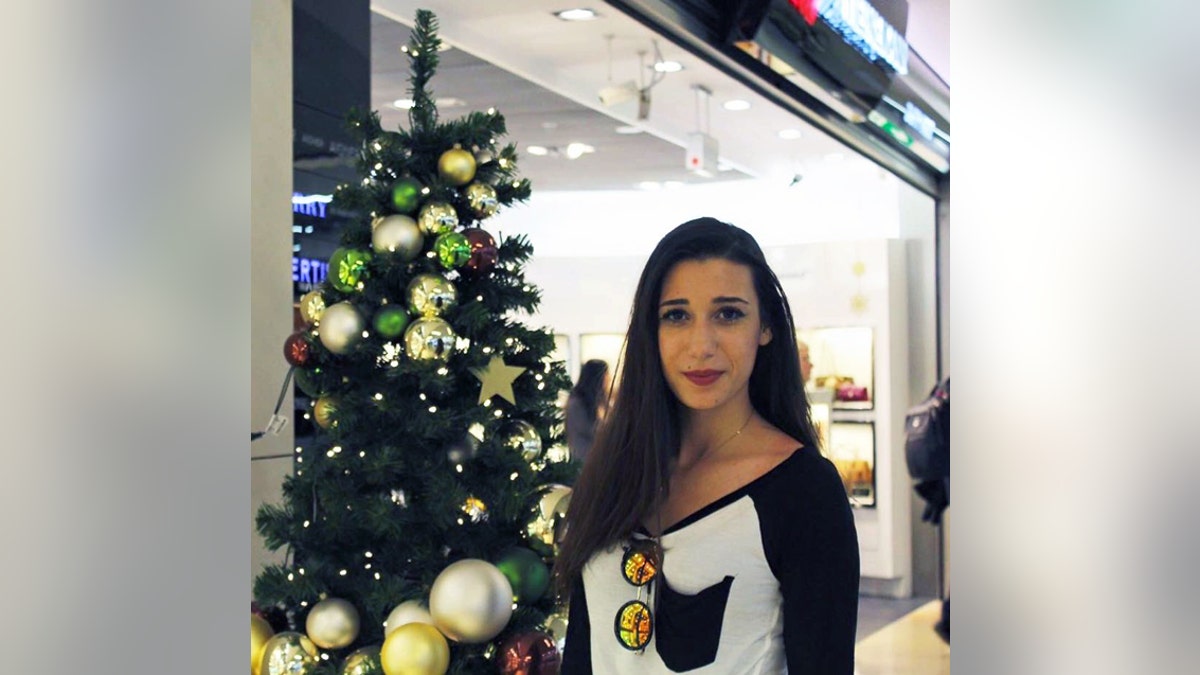
An Israeli Arab wears a Santa Claus costume as he rides a camel in Jerusalem's Old City on Dec. 20, 2016. Such an act would be illegal in Saudi Arabia, where any non-Muslim worship or celebration is puniishable by death, imprisonment or lashes. (Photo: REUTERS/Amir Cohen)
Even in Saudi Arabia, Santa Claus is coming to town. Well, maybe not to the whole town but at least to a number of homes.
While many of the doors in the Arab nation are firmly closed to him, the jolly fat man is busier than ever as underground Christmas celebrations attract more and more guests.
The Kingdom, which only recognizes a strict brand of Islamic faith and practice, prohibits Christianity and its people from celebrating the holiday.
However, insiders and experts claim that there are an increasing number of secret Christians – converting is illegal and punishable by death, imprisonment or lashes – and a growing number of Saudi residents celebrate Dec. 25.
“The number of Christian converts from Islam and other religions is increasing, along with their boldness in sharing their new faith,” David Curry, president and CEO of Open Doors USA, a non-profit focused on assisting oppressed Christians around the world. “But they have to be careful. A lot of persecution can come from family or society, rather than the government.”
The Saudi government doesn’t conduct any census about religious faith, and, officially, the percentage of Christians in the country is zero. But experts and outside groups believe that, out of around 30 million residents, there are around 1.2 million Christians – mostly expatriate migrant workers who don’t have citizenship.
Recent studies have estimated that up to 4.4 percent of the population identifies as Christian, a boost from 0.1 percent at the beginning of the 20th century.

Laura, left, spends almost every Christmas in Saudi Arabia. "We pray in little groups," she says. (Courtesy of Laura)
But there are no churches in Saudi Arabia, and even the wearing of any kind of religious symbols is forbidden – a Christmas tree or lights outside is unthinkable. So what is the holiday season really like in Saudi Arabia?
“I fly back to Saudi Arabia almost every Christmas. We pray in little groups,” said 18-year-old Laura, an Orthodox California native who spent much of her youth in Syria and Saudi Arabia and asked to be identified only by her first name.
“On Christmas night, we usually celebrate at a private compound or an Embassy where only foreigners are allowed. We drink and party until six in the morning,” said Laura, who is currently studying neuroscience at the University of California, Riverside. “The Saudi Government knows about it, so long as there are no Saudis at our celebrations, we’re safe.”
According to Laura, non-Saudi Muslims routinely join the Christmas festivities and take it as an opportunity to learn new things. While residents cannot have seasonal decorations outside, the inside of their homes brims with Christian symbols, Santa stockings, stars and tinsel.
“We know God is watching over us, and that is why we have been safe in the Kingdom of Saudi Arabia celebrating this occasion so far,” she went on. “It is very important for us to celebrate Christian occasions, because it is one of the ways we can pass on our religion to our children and to people younger than us.”
Jeff King, President of the International Christian Concern (ICC), cautioned that Christmas celebrations of any kind still carry a big personal risk as people are still arrested arbitrarily for violating religious laws.
“The Christmas season – often a season where Christians around the world are most visible – is a tense time for Christians in Saudi Arabia, who have to celebrate the holiday in secret, risking arrest and deportation,” he said, noting that despite pledges a decade ago to stop interfering with non-Muslim private worship, services at private homes are still targeted by officials.
The number of Christian converts from Islam and other religions is increasing [in Saudi Arabia], along with their boldness in sharing their new faith. But they have to be careful.
Some celebrators have been bold enough in recent years to post online about their Christmas festivities, much to the anger of religious leaders.
In December 2012, it was reported in Arab media that Saudi Arabia’s religious police – the Mutaween – raided a private home, arresting more than 40 guests for “plotting to celebrate” the birth of Jesus.
Last winter, rumors of an uptick in clandestine Christmas parties prompted the Saudi state media to reinforce that celebrating the holiday was forbidden, suggesting that for Muslims even to greet non-Muslims with a Christmas-related message was akin to “endorsing their faith.”
It wasn’t always like this. Before the 7th century spread of Islam, Christians built churches across the Persian Gulf state, with one of the earliest ever church structures – dating back to the 4th century – having been discovered in Jubail by archeologists.
The Apostle Paul spent time in Arabia, as did St. Thomas, and sections of the country like Najrat in the south, remained largely Christian until into the 10th century.
The U.S. Commission on International Religious Freedom (USCIRF) noted in its 2016 report that Saudi Arabia has improved a little when it comes to religious freedom, but that overall the situation remains dire. The U.S State Department has designated Saudi Arabia a “country of particular concern” (CPC) since 2004, but in recent years it was awarded an “indefinite waiver.”

Christmas displays like this California mall tree Laura stands next to would be strictly illegal in Saudi Arabia. (Photo courtesy of Laura)
The report pointed out that “US-Saudi relations remain close” and that, since 2010, the US government has sold more than $100 billion in arms to the Kingdom. Beyond that, American and Saudi interests are deeply intertwined in fighting terrorism.
So much so, religious liberty advocates say, that the U.S could afford to enforce a full, non-waiver CPC status and press the Saudi government to improve its record on religious freedom.
“Saudi Arabia remains uniquely repressive in the extent to which it restricts the public expression of any religion other than Islam,” USCIRF Chair Rev. Thomas J. Reese told FoxNews.com. “USCIRF has recommended that the [Obama] administration provide a detailed report on progress and lack of progress.”
Neither the US State Department nor the Saudi Arabian embassy in Washington, D.C., responded to requests for comment.
